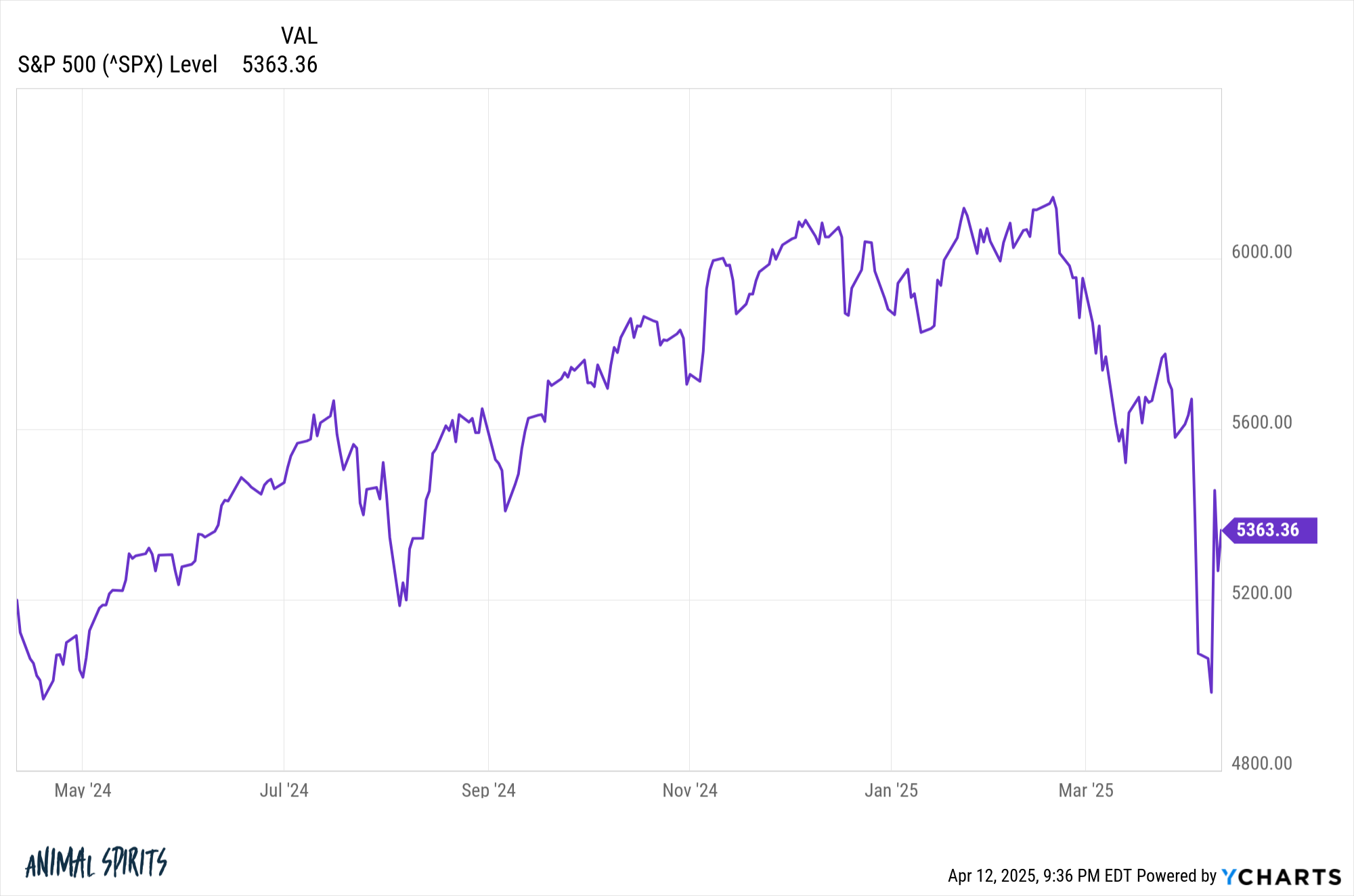Retirees Are Taking Their Dollars Abroad as U.S. Prices Climb
According to a price tracker report from CBS News, the cost of just about everything has increased in the past five years. Eggs top of the list, with a price increase of 279%. Also bringing in the top five are frozen orange juice, sugar, soft drinks, and round roast. It’s not just groceries; residential construction […] The post Retirees Are Taking Their Dollars Abroad as U.S. Prices Climb appeared first on 24/7 Wall St..

According to a price tracker report from CBS News, the cost of just about everything has increased in the past five years. Eggs top of the list, with a price increase of 279%. Also bringing in the top five are frozen orange juice, sugar, soft drinks, and round roast. It’s not just groceries; residential construction prices have risen 53% since 2016. Gas prices, housing, and rent have all gone up as well. Some retirees or soon-to-be retirees may look at the cost of living around them and decide, perhaps they can make their savings stretch further in another country where the cost of living is much less. After all, where the cost of living is higher in the U.S., so are salaries. If you take those hard-earned wages to another country with a lower cost of living, you’ll have a lot more room to spend than if you are stretched thin with a high cost of living. (Also see how an influx of retirees is changing the U.S. economy.)
24/7 Wall St. set out to determine where Americans are flocking to the most for their retirement years. To do so, we’ve checked into sources like the U.S. State Department, Global Citizen Solutions, Immigrant Invest, Condé Nast Traveler, and others. We listed the countries in order based on the available current populations of U.S. retirees.
(This article was updated on April 8, 2025, to reflect recent economic news from the CBS News price tracker report.)
Why Are We Talking About Overseas Retirement Now?

You may think retiring outside the U.S. is only for the wealthy, but, in many cases, it is a way for middle-class people to enjoy a nicer retirement than they could afford if they stayed in the U.S. As the CBS report revealed, prices are continuing to rise in America. If retirees can find another country with a lower cost of living, they’ll have more bang for their buck.
For example, a couple that retires at 65 with a nest egg of $500,000 may be able to stretch their dollars further in another country than if they stayed in the U.S. The median home sales price in the U.S. is now over $400,000, so a middle-class couple that otherwise has little savings for retirement might find most of this money in their home equity. Experts say you can withdraw 4% of your nest egg each year to stretch it for 30 years. This would give the couple $20,000 a year, not including Social Security. While this is below the poverty line in the United States, it can provide a reasonably comfortable life in Mexico, where the cost of living is nearly 50% lower and healthcare is 60% lower than in the United States.
What Should You Consider Before Retiring Abroad?

We get it: packing your bags and heading to a different country — especially one with a nice beach and a low cost of living — might sound great. If you’ve been dealing with any stressors lately, getting away from it all might sound even greater.
But before jumping on the living abroad bandwagon, here are some questions you should consider:
- How often do you want to visit your friends and family back home?
- Are you willing to learn a foreign language?
- What climate agrees with you best?
- What lifestyle changes would you be willing to make?
- Do you have an adventurous nature and like to try new things, or do you prefer what is familiar and comforting?
- Do you have health conditions that will limit where you can live and what medical facilities need to be nearby?
- Are you willing to divest yourself of your possessions and live a more minimalist lifestyle abroad, if your income requires it?
- Will you be able to receive your Social Security payments in the country you have chosen?
Most Popular Overseas Retirement Destinations

The most popular overseas retirement destinations are also some of the most popular vacation spots. These are some of the world’s most developed economies, offering a standard of living comparable to that in the United States. Some Americans choose to retire there because they have previously vacationed there or have family ties there. Healthcare costs are often less expensive than in the U.S., and when the dollar is strong, many other goods and services can be affordable. However, currency fluctuations in such strong economies can erode the value of the dollar and make your retirement more challenging. All of this speaks to the need to invest wisely in the years leading up to your move.
Here are the nine countries that American retirees love to move to:
9. Japan

- U.S. Retirees: 58,340
- Pros: Japan is safe, clean, and friendly. It has a high standard of living and technologically advanced healthcare, which is available to all citizens.
- Cons: Retiring in Japan requires going through a 10-year process to earn citizenship, learning Japanese, and having a minimum income of $32,200 a year.
8. France

- U.S. Retirees: 61,668
- Pros: France is a technologically advanced, modern country that retains Old World charm and history. Its culture is often associated with prestige, luxury, and romance. Housing can be quite affordable away from the beaten path. Plus, who doesn’t love the chance to enjoy wine, cheese, and baguettes on a budget?
- Cons: The language can be difficult to learn to perfection. Citizens in large tourist areas like Paris can become weary of interaction with foreigners, which means that they’re often less friendly. More recently, France has also faced a wave of violence and terror attacks — though these have not been very deadly.
7. South Korea

- U.S. Retirees: 68,050
- Pros: South Koreans generally love Americans and interact with them with curiosity, appreciation, and respect. In Asian cultures, older individuals are accorded special honor and respect. About 40,000 American troops are stationed in the country, which can enhance your sense of security living there.
- Cons: The Korean peninsula is one of the most dangerous flashpoints for conflict in the world, with a nuclear-armed North Korea poised to attack the South without warning. The Korean language is also one of the most challenging languages for Americans to learn.
6. Israel

- U.S. Retirees: 76,794
- Pros: Israel has an idyllic Mediterranean climate, a first-world standard of living, many English-speaking people, and a special cultural and historical significance for Jewish Americans. The food is delicious, and the culture of bartering in marketplaces means you’ll often not spend full price on what you want to buy.
- Cons: The region is prone to terrorism and war, and the government is not able to completely protect the security of residents. The Hebrew language is difficult to learn. Right now, there is also a lot of controversy given the conflict between Israel and Gaza.
5. Australia

- U.S. Retirees: 116,620
- Pros: Australia has over 10,000 beaches, more than any other country in the world, and 85% of the population lives within 30 miles of the coast. The culture is friendly and laid-back. Americans generally don’t have too much difficulty understanding the Australian accent and find it pleasing to the ear.
- Cons: The country is geographically distant, so it is expensive and time-consuming to fly back and forth. Australia is also infamous for its dangerous snakes, insects, and marine life. The climate can also be extreme, with flooding, droughts, sandstorms, and wildfires.
4. Germany

- U.S. Retirees: 152,639
- Pros: Germany is rich in culture and history, and has a strong economy and a comprehensive social safety net. It is centrally located and a member of the European Union, so residents can easily visit neighboring countries using the region’s high-speed rail network.
- Cons: The cost of living is quite high. Though many people speak English, they can be shy about doing so. It will be necessary to steadily learn and improve in the German language. Americans may find the high taxes, rules, and regulations of Germany oppressive. German people can be more shy and reserved than some Americans, so making friendships may be a slow and gradual process.
3. United Kingdom

- U.S. Retirees: 170,771
- Pros: You won’t have to learn a foreign language, though you may find some regional accents challenging to understand. The U.K. has a strong economy. Major cities are vibrant centers of international culture. The country is steeped in history and culture. You’ll also enjoy some of the most delicious tea you’ll ever find — multiple times a day, in fact.
- Cons: The social class system can present unspoken barriers to a foreigner trying to form friendships with local people. British politics can be chaotic and include abrupt changes, such as Brexit that affect the economy for better or worse. The weather can be abysmal and depressing. Budget for an occasional Mediterranean vacation!
2. Canada

- U.S. Retirees: 273,226
- Pros: Canadian culture is similar to that of the United States. 90% of Canadians live within 100 miles of the U.S. border, so it can be an easy drive or short flight to visit folks back in the States. Canadian people are unfailingly courteous and welcoming, so you’re likely to feel at home.
- Cons: Citizens of the U.S. can underestimate the real cultural differences they have with Canadians and can come across as arrogant and insensitive. Some Americans will chafe at the taxation and regulations in Canada that support a more robust social safety net.
1. Mexico

- U.S. Retirees: 799,248
- Pros: Mexico borders the U.S. and is easily accessible by car or plane. Spanish is one of the easiest languages for English speakers to learn. The cost of living is about 50% that of the U.S. There are a variety of climate zones in the country to choose from, including tropical, temperate, and arid.
- Cons: Poverty and crime are serious problems, including drug cartel violence. The country is subject to natural disasters like earthquakes and hurricanes. Changing U.S. immigration policies can contribute to refugee problems in border areas.
The post Retirees Are Taking Their Dollars Abroad as U.S. Prices Climb appeared first on 24/7 Wall St..

































































































































































